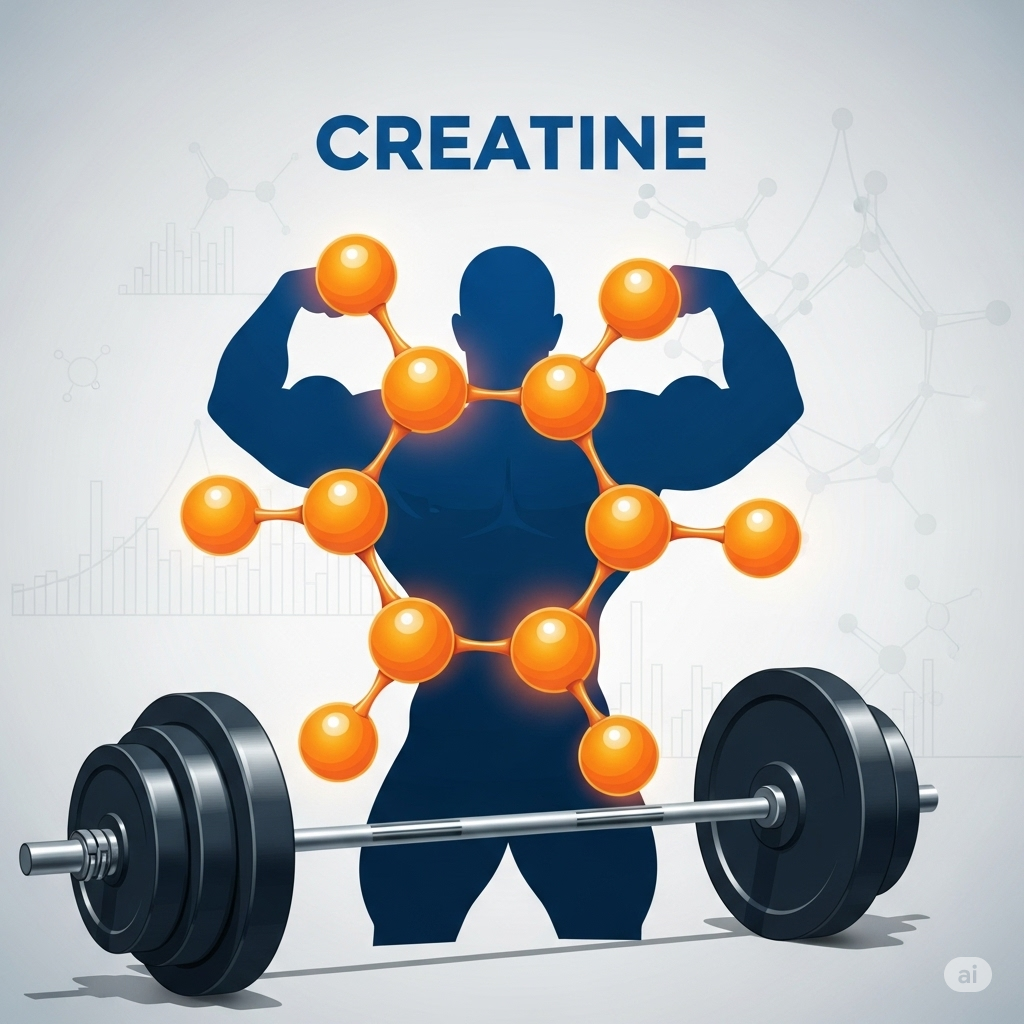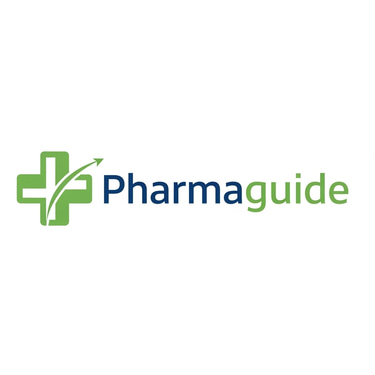The Truth About Creatine. What Does the Scientific Evidence Say?
Creatine: The Truth Behind the Most Studied Supplement
CREATINE
Nuri El azem De haro
8/26/20255 min read


Hello everyone! As a Doctor of Pharmacy, my goal is to provide you with clear, precise, and most importantly, science-backed health information. One of the most popular yet most misunderstood supplements in the world of sports and wellness is creatine. There are many questions and myths surrounding it, so, based on an extensive analysis of the scientific literature, I have prepared this guide to clarify all your doubts. Before starting, I want to mention the very interesting article on which I have based this blog post: Jose Antonio, Darren G Candow, Scott C Forbes, Bruno Gualano, Andrew R Jagim, Richard B Kreider, Eric S Rawson, Abbie E Smith-Ryan, Trisha A VanDusseldorp, Darryn S Willoughby, Tim N Ziegenfuss. Common questions and misconceptions about creatine supplementation: what does the scientific evidence really show?. J Int Soc Sports Nutr. 2021 Feb 8;18(1):13.
What is creatine and why is it so important?
Creatine is a compound that our body produces naturally in the kidneys and liver from the amino acids arginine, glycine, and methionine. Its main function is to help generate energy quickly in cells, especially in muscles. It can be obtained through diet, mainly from meat, and is one of the most popular dietary supplements for improving muscle mass, performance, and recovery.
It is important to note that creatine is not exclusive to athletes. Scientific evidence suggests that it has a variety of beneficial effects in older and patient populations, as well as on cognitive function.
Benefits in the Older Adult Population
The article points out that creatine has a therapeutic role in various clinical conditions, with one of the most promising being sarcopenia, which is the progressive loss of muscle mass and strength related to aging.
Effect with exercise: Evidence indicates that creatine supplementation, when combined with resistance training, improves muscle mass and functionality (strength, daily activities, reduced fatigue) in older adults. The document emphasizes that creatine alone does not produce substantial gains in muscle strength and performance.
Example: A study mentioned in the text shows that in men over 50 who combined creatine with resistance training, an increase in bone mineral content in the upper limbs and a reduction in bone resorption were observed.
Types of Exercise and Sports
Although creatine is known for its benefits in high-intensity activities like weightlifting, it can also be useful in other types of exercise and sports.
Endurance activities: Creatine, when combined with carbohydrates or carbohydrates and protein, can promote greater muscle glycogen storage, which is vital for recovery and for preventing overtraining during high-intensity periods.
Reduction of damage and injuries: There is evidence that creatine can reduce muscle damage and accelerate recovery after intense exercise. For example, in NCAA American football players, those who used creatine suffered significantly fewer cramps, heat-related illnesses, muscle strain, and total injuries compared to those who did not.
Collision sports: It has even been studied that it could have a neuroprotective effect in animal models, which suggests a possible benefit for athletes in collision sports who are at risk of concussions.
Effective Doses and Supplementation Strategies
One of the most frequent questions is about the correct dose. Research has shown that creatine supplementation is relatively well-tolerated, especially at recommended dosages.
Loading Phase: This is an optional but effective strategy to quickly saturate muscles with creatine. It involves taking a high dose of 20-25 grams per day for 5-7 days. This method has been shown to significantly increase muscle creatine stores.
Maintenance Phase: After the loading phase (or if you choose to skip it), the recommended maintenance dose is 3-5 grams per day. This daily dose allows you to keep creatine levels high in the muscles. Some athletes with greater muscle mass may require slightly higher doses, from 5 to 10 grams per day, to maintain saturation.
Ineffective/Problematic Doses: Extremely high doses, such as 100 times the recommended dose, have been associated with renal dysfunction in case studies, although they were often combined with other pre-existing conditions or the use of other medications. It is crucial to follow the recommended doses to avoid any unnecessary risk.
Debunking the Most Common Myths
Myth 1: Creatine damages the kidneys. This is one of the most widespread concerns, but extensive research for over 20 years shows that creatine, at recommended doses, does not cause kidney damage or dysfunction in healthy individuals. This myth is based on a misunderstanding of creatine metabolism: a natural byproduct, creatinine, rises in the blood and urine when taking creatine, which can be mistaken for poor kidney function. However, this increase does not indicate actual damage.
Myth 2: Creatine causes baldness or hair loss. Speculation about creatine and hair loss comes from a single 2009 study that observed an increase in dihydrotestosterone (DHT). Despite this, the increase in DHT remained within normal clinical limits, and the study has not been replicated. Current evidence does not suggest that creatine causes hair loss.
Myth 3: Creatine causes water retention, dehydration and muscle cramps. Although there may be a slight increase in intracellular water during the initial loading phase, long-term studies do not show a significant increase in total water retention. In fact, increased intracellular hydration can be an important signal for protein synthesis, which in turn promotes an increase in muscle mass. On the other hand, experimental and clinical evidence does not support the idea that creatine causes dehydration or muscle cramps. In fact, a study on American football players showed that creatine users had fewer cramps and muscle injuries than non-users.
Myth 4: Creatine causes hair loss or baldness. The speculation about the relationship between creatine and hair loss originated from a single 2009 study. In this study, an increase in dihydrotestosterone (DHT) was observed in rugby players. However, the results of this study have not been replicated, and DHT levels remained within normal clinical limits. Current evidence does not indicate that creatine supplementation increases total testosterone, free testosterone, DHT, or causes hair loss.
Myth 5: Creatine is harmful for children and adolescents. Concerns about the safety of creatine in children and adolescents are common. However, the available evidence suggests that creatine supplementation is safe and potentially beneficial for this population. In clinical settings, it has been observed that creatine can offer health benefits with minimal adverse effects in young populations. Recently, the U.S. Food and Drug Administration (FDA) classified creatine as "generally recognized as safe" (GRAS), which supports the safety of its use under intended conditions.
Myth 6: Creatine increases fat mass. The theory that creatine increases fat mass is a concern for some people, possibly because they experience an increase in total body mass when taking the supplement. However, numerous controlled and randomized trials, with durations from one week to two years, do not validate this claim. Research shows that creatine supplementation does not increase fat mass in various populations, including young adults, older adults, and postmenopausal women.
Myth 7: Some types of creatine are more effective than others. Creatine monohydrate powder is the most studied and widely used form in supplements since the 1990s. Despite marketing efforts that promote other forms (such as creatine HCL, creatine nitrate, etc.) as superior, there are no peer-reviewed studies that demonstrate that ingesting equal amounts of these other forms is more effective than monohydrate. In fact, creatine monohydrate is the safest, most effective, and most economical form available.
Summary
In short, creatine is one of the most researched supplements and its safety and efficacy are widely demonstrated by scientific evidence, as long as it is consumed at the recommended doses. Debunking these myths is essential for you to make informed decisions about your well-being.
If you are interested in starting to supplement with creatine and want a high-quality product, I invite you to explore the different options in Amazon following the below link. If you have any doubt, do not hesitate contacting me!
